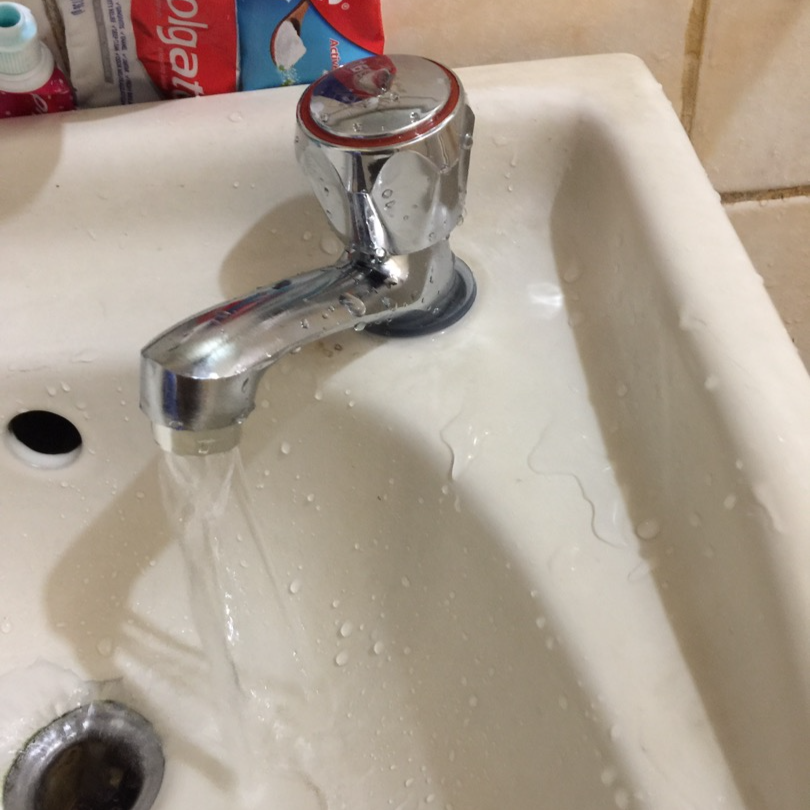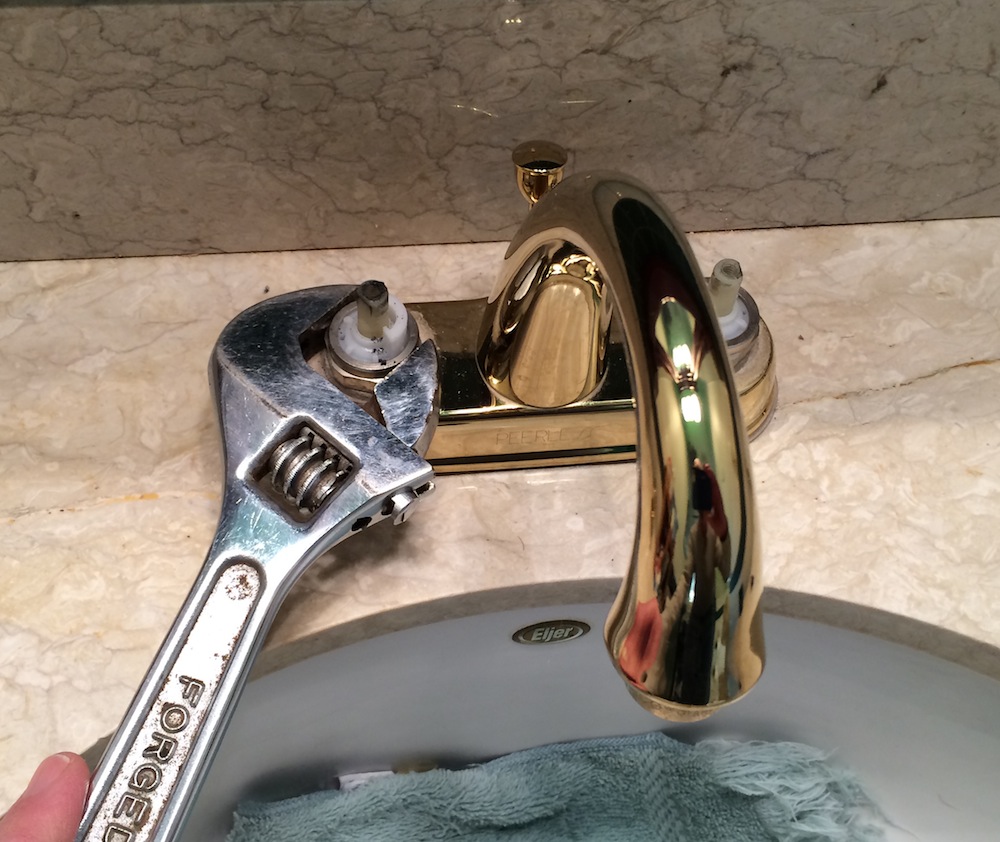Have you been looking for ideas concerning 4 Common Reasons for a Leaky Faucet?

Trickling taps may appear like a minor inconvenience, however their impact goes beyond simply the inconvenience of the noise. From wasting water to incurring unnecessary monetary prices and health threats, disregarding a dripping tap can result in various consequences. In this post, we'll look into why it's vital to address this usual household issue promptly and efficiently.
Wastage of Water
Environmental Influence
Trickling faucets add substantially to water wastefulness. According to the Environmental Protection Agency (EPA), a single faucet dripping at one drip per second can lose more than 3,000 gallons of water each year. This not only strains water resources however additionally affects ecosystems and wild animals dependent on them.
Financial Prices
Raised Water Costs
Beyond the environmental impact, trickling faucets can blow up water expenses considerably. The accumulated wastage over time equates into greater utility expenditures, which might have been prevented with timely repair work.
Possible Building Damage
In addition, prolonged trickling can bring about damage to components and surfaces surrounding the faucet. Water build-up can cause discoloration, deterioration, and even structural problems if left unattended, resulting in additional repair work expenses.
Health Issues
Mold And Mildew and Mildew Development
The continuous visibility of wetness from a trickling faucet creates a suitable setting for mold and mildew and mold development. These fungi not only compromise indoor air quality but also position wellness threats, especially for individuals with breathing conditions or allergic reactions.
Waterborne Illness
Stagnant water in dripping taps can end up being a breeding ground for bacteria and various other virus, raising the risk of waterborne diseases. Impurities such as Legionella germs flourish in stagnant water, possibly causing major health problems when consumed or inhaled.
Do it yourself vs. Specialist Repair work
Advantages and disadvantages of Do It Yourself Repair Service
While some may try to take care of a dripping tap themselves, do it yourself repair work come with their very own set of obstacles. Without appropriate knowledge and devices, DIY efforts can intensify the concern or result in incomplete fixings, extending the problem.
Advantages of Hiring a Specialist Plumber
Employing a specialist plumber guarantees that the underlying source of the leaking tap is dealt with properly. Plumbing technicians possess the experience and devices to detect and repair faucet concerns efficiently, saving time and decreasing the risk of additional damages.
Step-by-Step Guide to Dealing With a Dripping Faucet
Tools Called for
Before attempting to deal with a leaking tap, collect the necessary tools, consisting of a flexible wrench, screwdrivers, replacement parts (such as washing machines or cartridges), and plumber's tape.
Common Faucet Issues and Their Solutions
Determine the sort of faucet and the particular problem creating the drip. Common problems include damaged washing machines, corroded valve seats, or malfunctioning O-rings. Describe supplier instructions or online tutorials for step-by-step support on repair services.
Safety nets
Normal Maintenance Tips
To stop leaking faucets, do routine upkeep such as cleaning up aerators, evaluating for leakages, and replacing worn-out parts without delay. Additionally, take into consideration mounting water-saving devices or upgrading to more effective components.
Significance of Prompt Repair Works
Dealing with trickling faucets as quickly as they're noticed protects against additional water wastage and potential damage, inevitably saving both water and money in the future.
Impact on Residential Property Value
Understanding of Well-Maintained Residential Or Commercial Property
Maintaining a building in good condition, including dealing with upkeep problems like leaking taps, enhances its regarded worth and worth among possible purchasers or renters.
Influence on Resale Value
Properties with properly maintained plumbing fixtures, consisting of faucets, command higher resale values in the realty market. Resolving leaking taps can contribute to a favorable impression throughout residential property assessments and arrangements.
Environmental Duty
Individual Contribution to Conservation
Taking responsibility for taking care of dripping taps straightens with wider initiatives toward water conservation and ecological sustainability. Every person's actions jointly make a considerable impact on preserving valuable resources.
Lasting Living Practices
By focusing on punctual repairs and taking on water-saving practices, individuals contribute to lasting living practices that benefit both present and future generations.
Final thought
Resolving a leaking faucet exceeds mere convenience; it's an essential step towards conserving water, lowering economic prices, and securing health and wellness and home. Whether via do it yourself fixings or specialist support, taking action to repair trickling faucets is a small yet impactful means to advertise liable stewardship of resources and contribute to a much healthier, extra lasting future.
How to Fix a Leaky Faucet: Step-by-Step Repair Guide
A leaky faucet may seem like a simple annoyance, but if it's not fixed promptly, that leak could cost hundreds to potentially thousands. From water damage to mold, mildew, and high water bills, even a tiny leak can be catastrophic if left unattended. Damage like this can even affect the overall value of your home, so it's important to take the right approach for leaky faucet repair. You may need the help of a plumber in some cases, but we've got a few tips you can try on how to fix a leaky faucet before calling the pros.
Four Faucet Types
When you're learning how to fix a leaky faucet, the first step is knowing what kind of faucet you're working with! There are four common types.
Cartridge Faucets
Cartridge faucets come in one- or two-handled varieties. In one-handled cartridge faucets, hot and cold water combines in a single cartridge. In the two-handled versions, hot and cold water are controlled separately and mixed in the faucet.
Ball Faucets
Ball faucets have a single lever you push up and down to adjust the pressure and rotate to change the temperature. A slotted metal ball controls the amount of water allowed into the spout.
Compression Washer Faucets
They're the oldest type of faucet, but they're still used in many homes — especially older ones. Compression faucets have two separate handles that, when turned, raise or lower the washer that seals a water valve. This valve stops water from flowing through the faucet when it is turned off.
Disc Faucets
Disc faucets rarely need to be repaired due to their maintenance-free design. The water flow is controlled by two discs — the upper one raises and lowers against a fixed lower disc, creating a watertight seal. If your disc faucet starts leaking, you may need to replace the seals or clean residue buildup from the inlets.
Fixing a Leaky Faucet
Step 1: Turn Off the Water
Whether you're learning how to fix a leaky bathtub faucet or how to fix a leaky kitchen faucet, always turn off the water supply to your working area when you're fixing a leak. The last thing you want is a flood added to your list of things to fix.
Look for the shutoff valves below your sink or around the tub and turn them clockwise to stop the water flow. If your faucet doesn't have shutoff valves, you may need to turn off the water for the whole house. Check to make sure it's off by turning the faucet on. If nothing comes out, you're ready to start the repair.
Step 2: Take Apart the Faucet
How you disassemble your faucet depends on the type of fixture you have. You can use a flathead screwdriver to remove the caps on top of the handle or handles for cartridge and compression faucets. Inside, you should see handle screws. Unscrew these with a screwdriver to remove the handle.
Disc- and ball-style faucets will typically have an inlet screw near the handle, and removing that will reveal the interior of the faucet.
Detach the Valve Stem
For cartridge- and compression-style faucets, you'll see the inner valve stem or cartridge once you remove the faucet handles. If you have a compression faucet, unscrew the brass valve stem. If you have a cartridge faucet, pull out the cartridge. If your cartridge has been in place for a while, it may require some tools or extra force to remove it due to mineral deposits.
Examine and Replace Parts
Once you've removed the parts, check them out to confirm what needs to be replaced. You may see corroded rubber washers, O-rings, stems, or cartridges. On a ball-style faucet, check the seats and springs for damage.
If you need to repair a leaky disc faucet, check the inlet and seals on the lower disc.
Once you determine what parts must be replaced, visit your local hardware store. Bring the damaged parts with you to ensure you can purchase the correct components to replace them.
Clean Valves and Faucet Cavity
If you've removed a stem or cartridge, you may notice mineral buildup in the faucet's threads. Use white vinegar to clean the valve seat by soaking it for a few minutes, then scrub it away with a soft toothbrush and rinse with warm water. You can also clean the interior of the faucet in the same way.
Reassemble the Faucet
Once your faucet is cleaned and the required parts have been replaced, it's time to reassemble it. Put the pieces back together and slowly turn the water supply back on. Doing this slowly is crucial because too much initial water pressure can damage the new hardware you've just installed.
https://homewarranty.firstam.com/blog/how-to-fix-leaky-faucet

As a serious person who reads on 4 Common Reasons for a Leaky Faucet, I assumed sharing that piece of content was really helpful. Sharing is good. Helping others is fun. Many thanks for your time. Don't forget to stop by our blog back soon.
Comments on “Our Upsides of Repairing a Leaking Faucet”